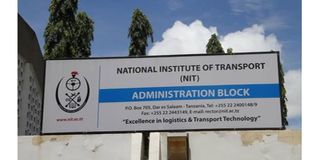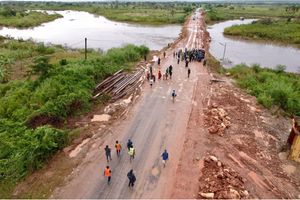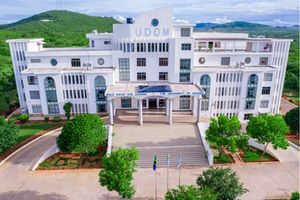NIT to establish railway campus in Tabora

What you need to know:
- The new Campus will aim at producing enough human resource to feed the railway sub-sector that received huge investment from the government
Dar es Salaam. The National Institute of Transport (NIT) plans to establish a new campus in Tabora that will provide railway training.
This was revealed in Dar es Salaam at the weekend by NIT’s Deputy Rector (Academic, Research and Consultancy), Dr Prosper Mgaya, during the institute’s ninth convocation.
“Our Tabora Campus will seek to produce enough human resource to feed the railway sub-sector that received huge investment from the government,” he told participants to the event that was themed: ‘Promoting Efficient Railway Transport for Sustainable Socio-Economic Development’.
NIT was working closely with Tanzania Railways Corporation and the Ministry of Works and Transport on the plan.
The goal, is said, was to ensure that the Institute plays a key role in the execution of mega national strategic projects including the Bus Rapid Transit (BRT), the Standard Gauge Railway (SGR), the sustainable revival of Air Tanzania Company Limited (ATCL), the blue economy, the East African Crude Oil Pipeline and the Julius Nyerere Hydropower Station Project.
“We also encourage innovative ideas to enable intersections of different disciplines and professions within our Institution. For example, we want the railway and other transport professionals working together to prevent road accidents; we want to see business, government and civil society leaders building frameworks to protect the environment while promoting economic growth,” he said.
Gracing the Convocation, the director of road transport from the Land Transport Regulatory Authority (Latra), Mr Johansen Kahatano, said NIT’s mandate was directly linked to almost all of Tanzania’s national strategic projects, hence the need for graduates to be abreast with the world’s fast changing technological advancements.
“….this globally networked world has led to an explosion of information that is expanding time exponentially. This comes with significant challenges and tremendous opportunities for you as the future leaders,” he said.
He said the favorable economic growth prospects for the East and Southern Africa region will result in increased trade flows which outs pressure on Tanzania’s transport infrastructure. “This calls for the need to address trade gaps through interventions which need to balance infrastructure investment and institutional reform aspects. Specific investments should prioritise railways development and transport corridor infrastructure to facilitate regional trade connectivity,” he said.





